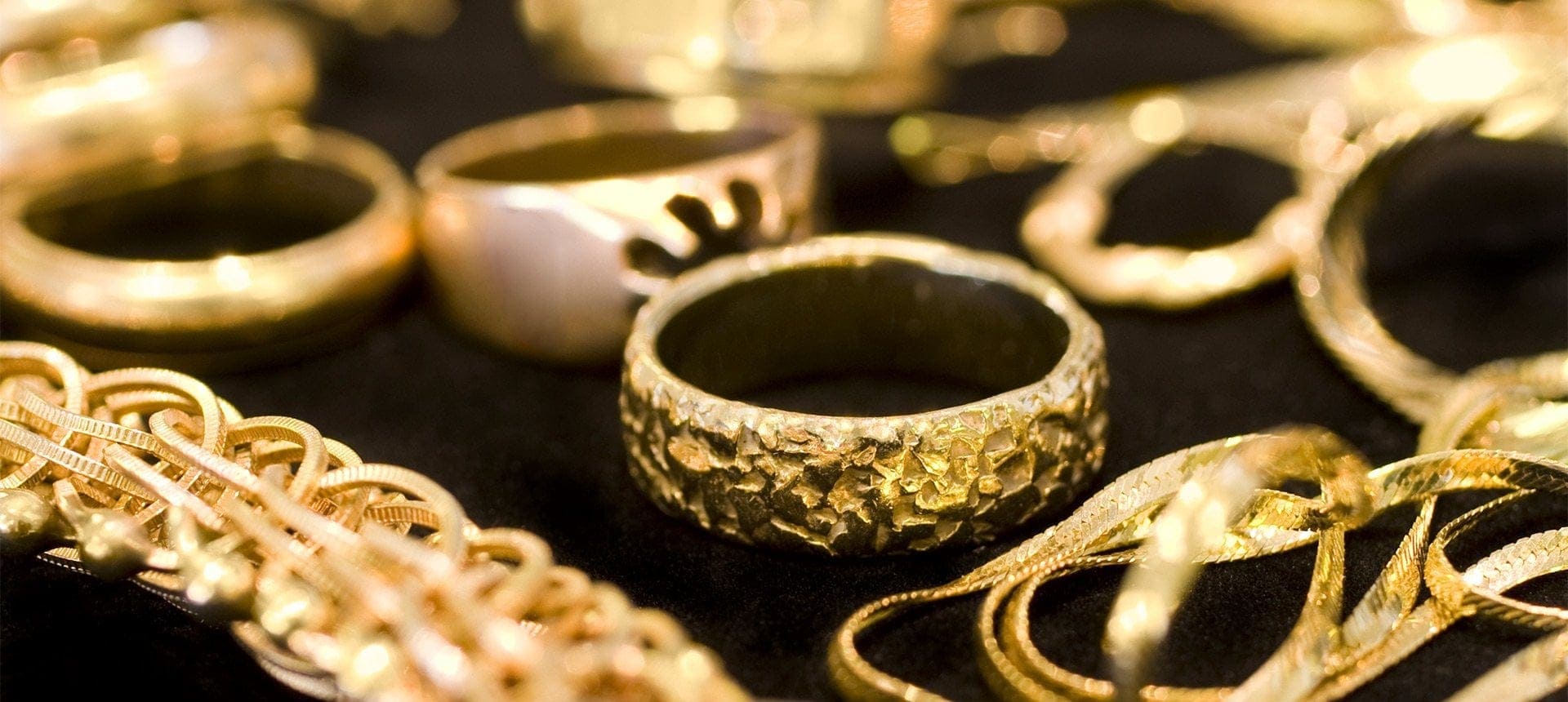Article Highlights
The world of jewelry can be difficult to navigate if you don’t have the knowledge of what the markings or stamps, also called hallmarks, mean. There are quite a few of them but it is not so complicated as it may seem at first glance. It really is cut and dried.
Before we get the whole picture let’s first find out what the 925 gold jewelry really means.
What is 925 gold?
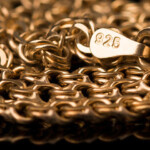
925 gold is sterling silver in gold disguise. It’s basically a sterling silver piece of jewelry that’s plated in gold and therefore it has the 925 stamp or hallmark on it. It is not necessarily bad or wrong to buy 925 gold piece as long as you know what you are buying (gold plated silver) and how much the price should be (much cheaper than solid gold).
There are quite a few advantages to buying 925 gold (for the right price). If you’re in love with the look of solid gold but don’t want to break the bank by buying a new piece of jewelry, a 925 gold piece could be right up your alley.
What do numbers typically mean when applied to gold jewelry?
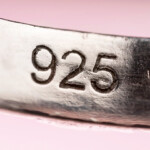
A piece of gold can have quite a few hallmarks stamped on it. These stamps can include letters, different types of marks such as trademarks, makers marks, purity testing office marks, dates, codes, and numbers.
Let’s take a closer look at the numbers. Numbers are basically gold purity stamps and they identify the percentage of gold purity and karats.
We have six different gold purity stamps:
375 – 37.5% or 9 karat
585 – 58.5% or 14 karat
750 – 75% or 18 karat
916 – 91.6% or 22 karat
990 – 99% or 24 karat
999 – 99.9% or 24 karat
The numbers can sometimes differ in other countries but the principle stays the same, ie. the three-digit number corresponds to the base metal percentage in both gold and silver pieces, but also the platinum ones.
Silver and platinum stamps, and therefore purity, range from 800 to 999 for the purest ones.
Is gold plated real gold?
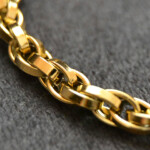
Gold plated or veneered jewelry is not made out of solid gold and therefore it does not constitute real gold. Its base is some other cheaper type of metal, usually silver or even copper that has a chemically or electrically applied layer of thin gold on it.
This golden layer can be incredibly thin. As thin as 1/1000 to 3/1000 of an inch. That is unbelievable don’t you think?
Dishonest retailers may try to trick you into thinking that 925 gold is solid gold. The reason for that is that silver is much cheaper and more affordable than gold. This way they can get a lot more money from an unaware customer.
It’s important that you check the hallmark or have the piece of jewelry acid-tested by a professional. You can do this process at home by buying a gold testing kit.
Why combine silver with other metals?

Most jewelry is not made out of pure silver or pure gold as those materials can be too soft in their purest form and therefore not suitable for making every piece of jewelry.
For example, the 925 stamp refers to the standard quality grade of 92.5 percent silver to 7.5 percent alloy such as copper, zinc, or even silicon. The reason for that is pure silver is too soft as already mentioned but also highly sensitive to smudging and tarnishing.
Why stamp gold jewelry with a silver mark?
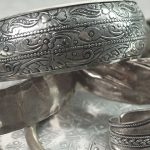
Because we now know that the 925 stamp does not refer to gold but to silver, it means that the actual silver piece of jewelry was stamped with the hallmark before a gold veneer was applied to it. Meaning that the 925 hallmark wasn’t applied to the finished piece of jewelry.
Unaware customers do tend to think that a piece of jewelry they’re looking at is 92.5% gold when in fact that is not true. The gold content is only a fraction of the total content.
What if there is no stamp?

Laws regarding gold stamping differ across different countries but the United States law requires that gold jewelry sold by a merchant must be stamped with a hallmark that indicates the item’s karat number.
There can be a few reasons as to why a piece of gold, or any other jewelry for that matter, doesn’t have a stamp. The piece could be very old and was never stamped, or the stamp wore off. It could also be that it was a custom job and the stamp was never applied to it.
Anyhow, if you have jewelry without a stamp or you want to buy one, you can easily test the said piece with acid at most jewelers or order a gold testing kit to do it at home.
A stamp can always be applied to it once you find out what the actual purity is.
What about 925 Italy?

This is a common stamp that simply means that the silver jewelry was made in Italy out of 925 sterling silver or that it is a 925 gold plated silver piece of jewelry made in Italy. In any case, it doesn’t mean anything apart from that and should be treated like any other piece of 925 stamped jewelry.
Is 925 gold worth buying?

It sure can be worth buying as you’re getting the looks of gold jewelry coupled with the price of less expensive silver jewelry. Meaning, you get the esthetics of solid gold but for a fraction of the price. It can still be a fine piece to add to your collection as the 925 sterling silver is a high-quality staple material in the jewelry-making world.
It all comes down to what your preference is and knowing what exactly you are buying. Solid gold lovers should avoid 925 gold though. It is good to remember that you should always buy your jewelry from reputable and official sellers that you can trust.

